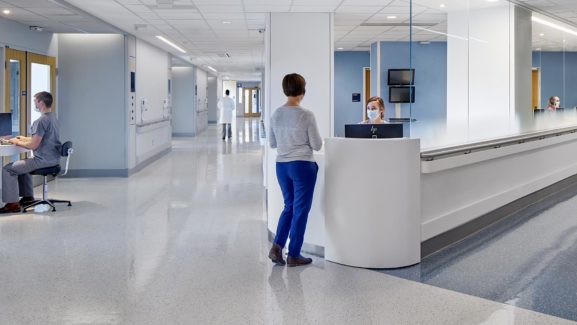

The ARD Project: What This Latest Acronym Means for Ambulatory Patients & Team Members
Ambulatory Role Delineation — it’s not a phrase that rolls right off the tongue, but it is the latest in a series of strategic transformations that Ambulatory Operations is undertaking to deliver best-in-class outpatient care.
So, what is it, anyway?
The Ambulatory Role Delineation Project (or ARD Project) is working to create scope of practice and competency standards across UVA Ambulatory clinics for a number of team-member roles. Currently, there are more than 340 discrete jobs working in administrative, clinic support, nursing, quality, and specialist roles in our clinics, some of which are specific to one specialty, redundant, or not aligned with their associated governing bodies.
Creating universal standards for roles across our 137 Ambulatory clinics and streamlining the names of job roles can reduce confusion around job responsibilities, barriers to working at top of practice, and instances of team members being asked to work beyond the scope of their role. In turn, clinic managers will be better positioned to optimize clinic staffing.
Win-Win
The impact of these changes will be significant and felt by patients and team members alike.
Greater role clarity and the ability to work both within and at top-of-practice scope is expected to enhance team member satisfaction and retention. In turn, patients can expect elevated care and greater access thanks to improved clinic staffing and satisfied team members.
“We have incredibly talented and dedicated team members working in our Ambulatory clinics,” said Rachel Nauman, DNP, Ambulatory Nursing Administrator and ARD Project lead. “These changes will allow them to do more of the work they’ve trained for and help ensure that every patient receives best-in-class care.”
A Phased Approach
Work on the ARD Project is already in progress. The project team is tackling the in-scope job roles by category and will work with clinic managers to implement the new standards and competency assessments on a tiered schedule, starting with Clinic Support Staff this fall and wrapping up in 2024. More details about the project timeline and a complete list of in-scope roles are available in this project overview.
“As we think about implementation, we know that clinic managers know best when it comes to staffing their clinics,” continued Nauman. “The project will empower them with tools and support but also provide the flexibility to incorporate the updated roles and standards in a way that works best for their clinic.”
To learn more about the ARD Project, read the announcement message from Chief Ambulatory Operations Officer John Bennett and Rachel Nauman here and explore the project intranet site.
Latest News



